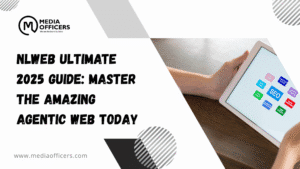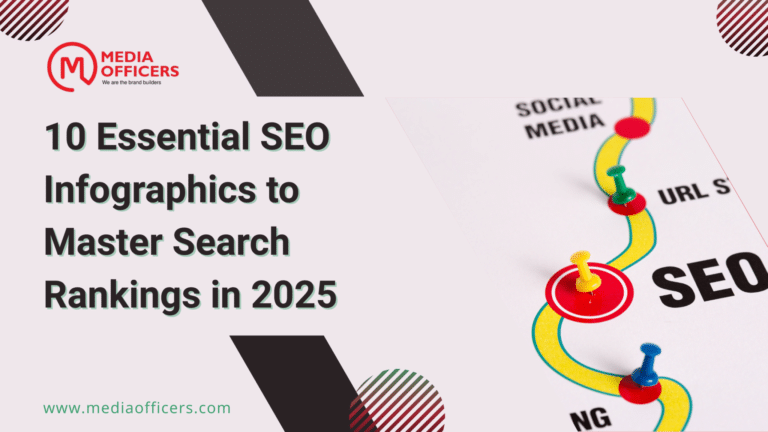NLWeb is redefining how publishers and developers think about the web. The agentic web is emerging as NL-Web turns existing sites into conversational knowledge graphs that AI agents can query in natural language.
For technical SEOs, the shift means moving beyond click optimization toward visibility, comprehension, and direct machine interaction. The time has arrived to design your site as a living interface that agents can reason with, not just a collection of pages to index.
What NLWeb is and why it matters
The term NLWeb refers to the open source project that provides a bridge between traditional websites and the chatty, queryable AI layer that many refer to as the agentic web. By standardizing how content is exposed, NLWeb makes it possible to transform a site into an AI powered interface without starting from scratch.
In practical terms NLWeb treats a site as a knowledge graph where entities such as products, services, locations, and people connect through explicit relationships. This approach aligns with the core idea of the agentic web, where schema.org markup becomes the API that AI models query when they need precise answers rather than generic pages.
The architecture you need
The NL-Web architecture centers on three layers that combine to deliver conversation ready data. First there is data ingestion and format, which starts with robust schema.org markup in JSON-LD. NLWeb can translate non JSON-LD sources into schema types so nothing useful gets ignored.
Second is semantic storage in a vector database. Represented as mathematical vectors, these records enable semantic similarity and reasoning beyond keyword matching. For example a query about structured data maps conceptually to content marked up with schema markup, even when the wording differs.
Third is protocol connectivity through the Model Context Protocol MCP. This open standard makes data exchange between AI systems predictable and scalable, which is essential in a fragmented AI ecosystem. With MCP, each NLWeb instance acts as a trusted conversational endpoint rather than a static crawler.
Why schema.org is the foundation
Structured data is no longer simply an SEO tactic for rich results. In the agentic web, it is the actual data contract that AI agents rely on to reason and respond. The schema.org vocabulary provides the semantic context that allows AI to interpret relationships and attributes with confidence.
NLWeb pushes this concept forward by converting a site existing JSON-LD into a living interface. The result is a knowledge graph that can answer questions with direct JSON responses for machines and structured data for humans. This shift from raw markup to a semantic interface is what transforms a static site into an active AI partner.
From data to dialog
When a site blooms into a conversational resource, entity-first schema becomes the operating system. It means you audit and optimize for entities and their relationships first, rather than chasing the next feature snippet. The net effect is faster, more precise responses from AI agents and more durable visibility in the agentic web landscape.
NLWeb vs llms.txt: a path to dynamic interaction
The llms.txt approach proposes a static, prioritized file to guide crawlers. The goal is to reduce the context window pressure and simplify access to key pages. In practice, llms.txt offers passive guidance rather than a live conversational interface.
By contrast, NLWeb delivers a dynamic API endpoint that AI agents can query. The system accepts natural language, interprets it against the site knowledge graph, and returns structured JSON via schema.org types. This active protocol enables richer, transactional interactions rather than mere pointers.
In the market, dynamic utility is proving more compelling for publishers who want to automate knowledge workflows, answer complex questions, or synthesize data from multiple pages. The agentic web becomes a practical reality when you adopt NLWeb rather than static guidance.
Key contrasts
- Primary goal NL-Web enables dynamic interaction versus llms.txt which optimizes for crawl efficiency.
- Data format NLWeb relies on schema.org JSON-LD not markdown lists. In practice this means richer, machine readable signals.
- Adoption NLWeb is an open project with connectors to major LLMs; llms.txt remains a proposed standard with limited uptake.
The mandate for high quality schema audits
NL-Web shows promise, but the value hinges on the quality of your structured data. A robust, entity-first schema audit ensures your content yields accurate, useful responses when AI agents query the graph. If your data is incomplete or misconnected, the vector store will propagate errors and hallucinations.
To future proof, organizations should audit for integrity, completeness, and interconnectedness across all entities, products, services, locations, and people. Schema quality becomes not only an SEO metric but a business risk metric as AI agents rely on your data for trust and decision making.
A practical, step by step path to NLWeb maturity
Modern NLWeb adoption follows a simple progression from inventory to interaction. Start by a comprehensive audit of existing JSON-LD markup and related schema.org types. Then map entities and relationships, fill gaps, and align content with a coherent knowledge graph.
- Audit and normalize JSON-LD for all pages and types that matter to your audience
- Identify missing entities and update the markup to reflect real world relationships
- Ensure accurate connections among products, services, locations, and people
- Consolidate duplicate entities and resolve inconsistent naming
- Test data ingestion with the NLWeb pipeline and validate outputs for accuracy
In time this entity-first approach to schema yields stronger brand authority and a durable advantage in the agentic web. The ROI appears as reduced user friction and improved evidence of expertise in AI interactions.
Step by step SEO strategy to execute
The following practical plan aligns with the NLWeb model and ensures you are prepared for AI driven queries. It focuses on data quality first, then on discoverability and value.
- Analyze search intent and keywords for your domain, with NLWeb as the focus keyword. Confirm related keywords such as agentic web, schema.org, JSON-LD, and entity relationships.
- Craft core SEO elements with NLWeb at the front of titles and headings. Use power and sentiment words and include a 2025 time signal.
- Audit and optimize schema.org markup across core pages, ensuring complete entity relationships and correct types in JSON-LD
- Implement a robust vector storage strategy and ensure MCP compatibility for cross system interoperability
- Monitor AI outputs for accuracy and reduce surface areas for hallucinations with ongoing data hygiene
As you execute this plan, maintain a rhythm of schema maintenance and content updates. The agentic web rewards active, well connected knowledge graphs more than transient optimization tricks.
Frequently Asked Questions
What is NLWeb and why should I care for SEO?
NLWeb is an open source framework that makes a site queryable by AI agents. For SEO teams, this translates to durable visibility and the ability to support conversational queries beyond traditional rankings.
What is the agentic web and how does it affect content strategy?
The agentic web treats content as a conversational knowledge base. Your data must be structured and interconnected to support accurate AI responses and practical interactions, not just high page impressions.
How does JSON-LD fit into NLWeb?
JSON-LD is the preferred input in the NLWeb pipeline. It encodes entities and relationships in a machine readable form that a vector store can reason about.
What about llms.txt vs NLWeb?
llms.txt offers static guidance for crawlers; NLWeb provides an active conversational endpoint with structured JSON outputs. Much of the industry interest now focuses on NLWeb style capabilities.
Conclusion
Adopting NLWeb is a strategic step toward the agentic web future. By prioritizing entity-first schema and a robust data pipeline, you position your organization to deliver precise AI responses, reduce friction for users, and build enduring visibility. The time to future-proof your site with NLWeb and schema oriented governance is now.




